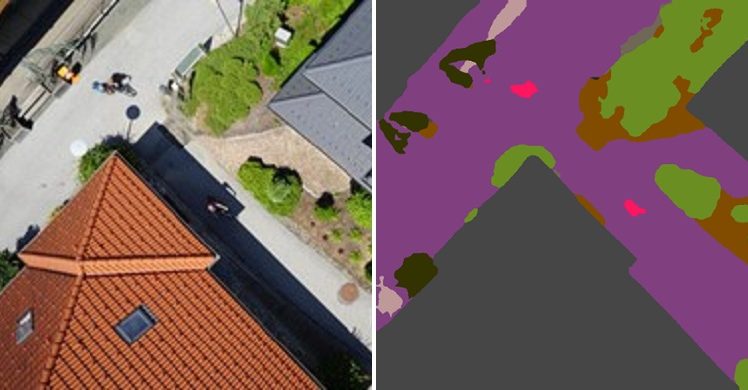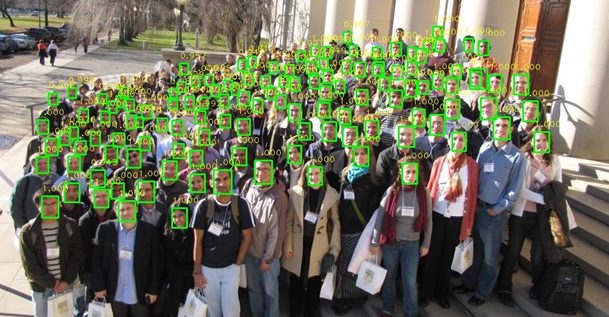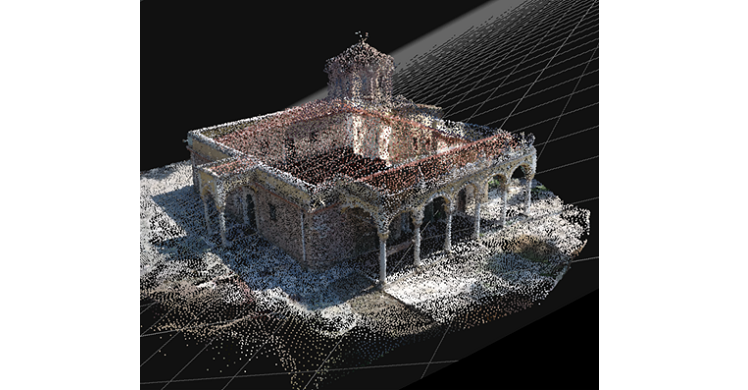The course will take place as live web course.
DESCRIPTION
Nowadays, Artificial Intelligence drives scientific and economic growth worldwide. This is largely due to advances in Machine Learning (ML), notably in Deep Neural Networks (DNNs), which are essentially massive ‘learning by experience/examples’ systems. Their applications span and revolutionize almost every human activity:
- Autonomous Systems (cars, drones, vessels),
- Media Content and Art Creation (including fake data creation/detection), Social Media Analytics,
- Medical Imaging and Diagnosis,
- Financial Engineering (forecasting and analytics), Big Data Analytics,
- Broadcasting, Internet and Communications,
- Robotics/Control
- Intelligent Human-Machine Interaction, Anthropocentric (human-centered) Computing,
- Smart Cities/Buildings and Assisted living.
- Scientific Modeling and Analytics.
Several AI advances and challenges hit the news almost every day, arising discussions on AI ethics, privacy protection and its societal impact.
This two-day short course focuses on Machine Learning and Deep Neural Network theory, their applications in the above-mentioned diverse domains and new challenges ahead. It consists of two parts (A, B) and each of them including 8 one-hour lectures and related material (slide pdfs, lecture videos, understanding questionnaires).
Part A lectures (8 hours) provide an in-depth presentation of Deep Neural Networks, which are at the forefront of AI advances today, starting with introduction to Machine Learning. Then the cornerstone DNN theory and technologies are presented: a) Artificial Neural Networks, Perceptron; b) Multilayer perceptron, Backpropagation; c) Deep neural networks. Both data classification and regression problems are treated. Convolutional NNs; d) Recurrent Neural Networks. Applications follow in several image analysis, computer vision and autonomous system applications, notably: a) Deep learning for object detection and b) Deep Semantic Image Segmentation. Finally, Generative Adversarial Networks are presented that promise to revolutionize the way we create media/arts, while seriously threatening our democracy with fake data creation and spread.
Part B lectures (8 hours) provide fan in-depth presentation of Machine Learning to complement DNNs. Unsupervised Learning (Data Clustering) is first detailed, allowing us to find structure and extract concepts/knowledge from huge high-dimensionality data. Then Supervised Learning (Data Classification) techniques are presented, notably: a) Decision surfaces (whose special case is DNNs and SVMs) and b) Distance based classification. Dimensionality reduction techniques are overviewed, allowing us to visualize high-dimensionality data found in most applications, ranging from Medicine to Financial Engineering. Kernel methods are presented that can boost performance of any linear ML operation (e.g., PCA, K-means etc). Bayesian learning provides a unified theoretical framework that can encompass many of the ML approaches. Deep Reinforcement Learning is also presented, as it is an essential element in novel Robotics/Control and other decision-making application domains. Finally, CVML programming tools (e.g., DNN frameworks, BLAS/cuBLAS, DNN and CV libraries) are overviewed, as they allow fast application of all the above knowledge in almost any application domain.
This short e-course offers an excellent introduction of the CVML short e-course on ‘Computer Vision and Image Processing’ 17-18th March 2021:
CVML Short Course – Computer Vision and Image Processing
UNIVERSITY AUTH
This short course is hosted by Aristotle University of Thessaloniki (AUTH). It is ranked 153/182 internationally in Computer Science/Engineering, respectively, in USNews and is the biggest University in SE Europe.
WHEN?
The course will take place as a live web course on 17-18 February 2021.
PROGRAM
You can click on the lecture title to view its description.
| Time*/date | 17/02/2021 | 18/02/2021 |
| 08:00 – 09:00 | Registration | |
| 09:00 – 10:00 | Introduction to Machine Learning | Data Clustering |
| 10:00 – 11:00 | Artificial Neural Networks, Perceptron | Distance-based Classification |
| 11:00 – 11:30 | Coffee break | Coffee break |
| 11:30 – 12:30 | Multilayer perceptron. Backpropagation | Decision Surfaces. Support Vector Machines |
| 12:30 – 13:30 | Deep neural networks. Convolutional NNs | Dimensionality Reduction |
| 13:30 – 14:30 | Lunch break | Lunch break |
| 14:30 – 15:30 | Deep learning for object detection | Kernel Methods |
| 15:30 – 16:30 | Deep Semantic Image Segmentation | Bayesian Learning |
| 16:30 – 17:00 |
Coffee break |
Coffee break |
| 17:00 – 18:00 |
Generative Adversarial Networks | Deep Reinforcement Learning |
| 18:00 – 19:00 |
Recurrent Neural Networks. LSTMs | CVML Software Development Tools |
*Eastern European Time (EET)
**This programme is indicative and may be modified without prior notice by announcing (hopefully small) changes in lectures/lecturers.
***Each topic will include a 45-minute lecture and a 15-minute break.
LECTURER

Prof. Ioannis Pitas (IEEE fellow, IEEE Distinguished Lecturer, EURASIP fellow) received the Diploma and PhD degree in Electrical Engineering, both from the Aristotle University of Thessaloniki (AUTH), Greece. Since 1994, he has been a Professor at the Department of Informatics of AUTH and Director of the Artificial Intelligence and Information Analysis (AIIA) lab. He served as a Visiting Professor at several Universities.
His current interests are in the areas of computer vision, machine learning, autonomous systems, intelligent digital media, image/video processing, human-centred computing, affective computing, 3D imaging and biomedical imaging. He has published over 1000 papers, contributed in 47 books in his areas of interest and edited or (co-)authored another 11 books. He has also been member of the program committee of many scientific conferences and workshops. In the past, he served as Associate Editor or co-Editor of 9 international journals and General or Technical Chair of 4 international conferences. He participated in 70 R&D projects, primarily funded by the European Union and is/was principal investigator/researcher in 42 such projects. Prof. Pitas lead the big European H2020 R&D project MULTIDRONE: https://multidrone.eu/. He is AUTH principal investigator in H2020 R&D projects Aerial Core and AI4Media. He is chair of the Autonomous Systems Initiative https://ieeeasi.signalprocessingsociety.org/. He is head of the EC funded AI doctoral school of Horizon2020 EU funded R&D project AI4Media (1 of the 4 in Europe).
He has 32200+ citations to his work and h-index 85+ (Google Scholar)
Prof. Pitas lead the big European H2020 R&D project MULTIDRONE and is principal investigator (AUTH) in H2020 projects Aerial Core and AI4Media. He is chair of the Autonomous Systems initiative https://ieeeasi.signalprocessingsociety.org/.
Professor Pitas will deliver 16 lectures on deep learning and computer vision.
Educational record of Prof. I. Pitas: He was Visiting/Adjunct/Honorary Professor/Researcher and lectured at several Universities: University of Toronto (Canada), University of British Columbia (Canada), EPFL (Switzerland), Chinese Academy of Sciences (China), University of Bristol (UK), Tampere University of Technology (Finland), Yonsei University (Korea), Erlangen-Nurnberg University (Germany), National University of Malaysia, Henan University (China). He delivered 90 invited/keynote lectures in prestigious international Conferences and top Universities worldwide. He run 17 short courses and tutorials on Autonomous Systems, Computer Vision and Machine Learning, most of them in the past 3 years in many countries, e.g., USA, UK, Italy, Finland, Greece, Australia, N. Zealand, Korea, Taiwan, Sri Lanka, Bhutan.
https://aiia.csd.auth.gr/computer-vision-machine-learning/#pitas
https://scholar.google.gr/citations?user=lWmGADwAAAAJ&hl=el
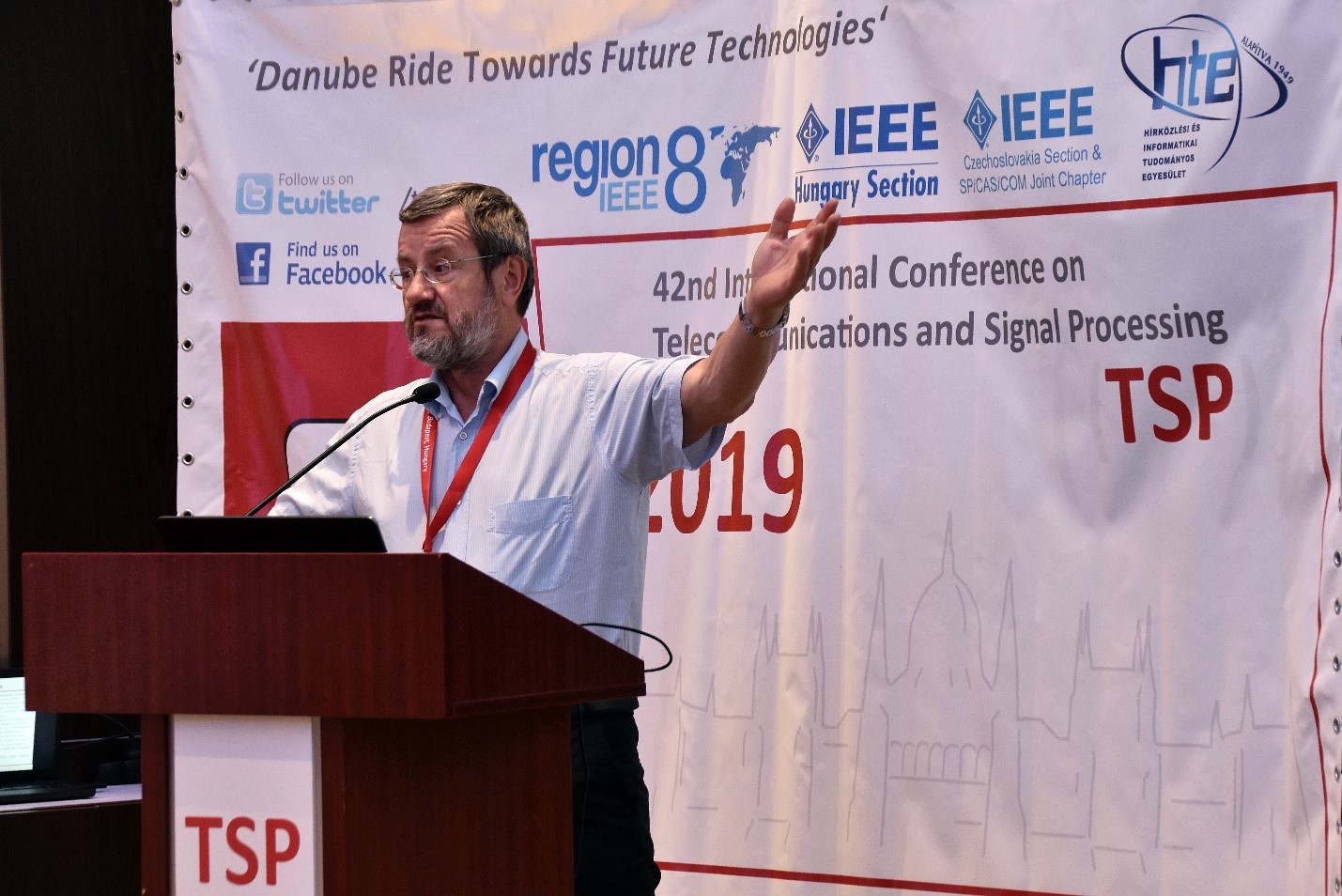
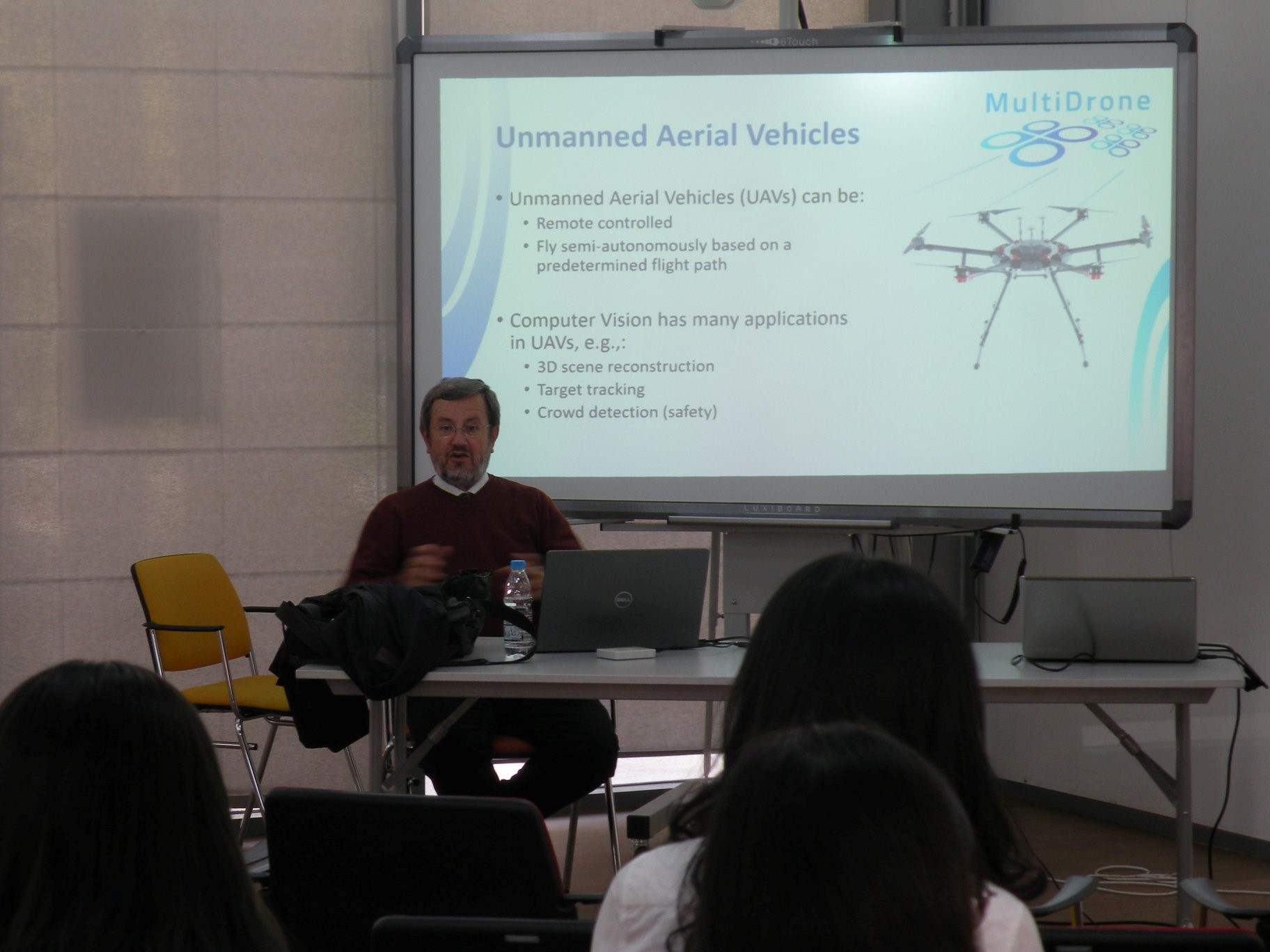
REGISTRATION
Early registration (till 8/02/2021):
• Standard: 300 Euros
• Undergraduate/MSc/PhD student*: 200 Euros
Later or on-site registration (after 8/02/2021):
• Standard: 350 Euros
• Undergraduate/MSc/PhD student*: 250 Euros
*Proof of student status should be provided upon registration.
After the completion of your payment, please fill in the form below:
Up to 10 PhD students, registered in AUTH or in any VISION CSA https://www.vision4ai.eu or AI4Media https://ai4media.eu/ or Humane-AI-Net https://www.humane-ai.eu/ University partners, are entitled for 1 free CVML Web Course registration per fall/spring semester on a FCFS basis, with priority to ones working on AI-related topics. This offer is related to the upcoming educational activities of International AI Doctoral Academy (AIDA) http://www.i-aida.org/ that is co-initiated by these two projects.
Please send email with tilte “Winter School 2021 – Machine Learning: free registration” to koroniioanna@csd.auth.gr, if you belong to the above category.
_______________________________________________________________
Lectures will be in English. PDF slides will be available to course attendees.
A certificate of attendance will be provided.
***The short course on «CVML Short Course – Machine Learning and Deep Neural Networks» will take place as live web course on 17-18 February 2021. Lectures will be prerecorded to facilitate attendees in case they experience problems due to time difference. Remote participation will be available via teleconferencing.***
Cancelation policy:
- 50% refund for cancelation up to 31/01/2021
- 0% refund afterwards
_______________________________________________________________
KNOWLEDGE SELF-ASSESSMENT
You may want to self-assess your knowledge on Machine Learning and Deep Neural Networks topics, by trying the assessment exercises in https://aiia.csd.auth.gr/cvml-knowledge-self-assessment/ before and after studying this course.
It takes you only 15 min per questionnaire. You can do this double self-assessment (before/after study) for free, using the sample lecture study material provided below.
CVML PROGRAMMING EXERCISES
Goal: Improve your programming knowledge on Computer Vision, Machine Learning and Image/Video Processing topics using OpenCV, PyTorch and CUDA and your skills on building, e.g.. Convolutional Neural Networks and applying object tracking methods.
https://aiia.csd.auth.gr/cvml-programming-exercises/
CVML SOFTWARE
The following tools are available for demos and student training in the various CVML courses:
- 2D computer vision and image processing software EIKONA.
- 3D image processing and analysis software EIKONA3D.
TOPICS
17th February 2021– Part A: (first day, 8 lectures)
Part A Deep Neural networks
Introduction to Machine Learning
Artificial Neural Networks, Perceptron
Multilayer perceptron. Backpropagation
Deep neural networks. Convolutional NNs
Deep learning for object detection
Deep Semantic Image Segmentation
Generative Adversarial Networks
Recurrent Neural Networks. LSTMs
18th February 2021 – Part B: (second day, 8 lectures)
Part B Machine Learning. Pattern Recognition
Data Clustering
Decision Surfaces. Support Vector Machines
Distance-based Classification
Dimensionality Reduction
Kernel Methods
Bayesian Learning
Deep Reinforcement Learning
CVML Software Development Tools
AUDIENCE
Any engineer or scientist practicing or student having some knowledge of Mathematics (Calculus, Linear Algebra, Probabilities), notable CS, CSE, ECE, EE students, graduates or industry professionals with relevant background.
IF I HAVE A QUESTION?
PAST COURSE EDITIONS
——————————————————————————————————————
Participants: 35
Countries: France, Taiwan, United States, Sweden, Denmark, Germany, Pittsburgh, Germany, Greece, England, Italy, Spain, Iceland.
Registrants comments:
- “The quality of the lectures was high; the professor did a very good job explaining clearly all the concepts. It went according to the plan, and to my personal expectations.”
- “Personal experience is always important in this kind of courses. Sometimes adds more gain than general theory.”
- “It was an intensive ride through a wide range of topics regarding drones in research, which I enjoyed quite a lot. It was helpful to brush on past knowledge and accumulate new one. The course also offered me the possibility to encounter a community of passionate researchers which can only motivate me to work harder.”
——————————————————————————————————————
Summer School 2020 (held as a web course due to Covid-19 circumstances)
Countries: Belgium, Ireland, Greece, Finland, China, Italy, France, Croatia, Spain, United Kingdom
Registrants comments:
- “Very interesting lecture topics regarding the autonomous systems perception.”
- “The overall course was quite interesting and fulfilling in terms of the context promised.”
- “The lectures were very appealing and satisfactorily delivered.”
——————————————————————————————————————
Participants: 39
Countries: United Kingdom, Scotland, Germany, Italy, Norway, Slovakia, Spain, Croatia, Czech Republic, Greece
Registrants comments:
- “Very adequate information about the topics of DL, CV and autonomous systems.”
- “Very good coverage of autonomous systems vision perception.”
- “Course’s content was greatly explanatory with many application examples.”
- “Very well structured course, knowledgeable lecturers.”
——————————————————————————————————————
SAMPLE COURSE MATERIAL & RELATED LITERATURE
- Pitas, Computer Vision and Machine Learning, Amazon CreateSpace preprint, 2021.
- Pitas, 3D imaging science and technologies, Amazon CreateSpace preprint, 2021.
- Pitas, Digital video processing and analysis, China Machine Press, 2017 (in Chinese).
- Pitas, Graph analysis in social media, editor, CRC Press, 2016.
- Pitas, Digital Video and Television, Createspace/Amazon, 2013.
- Pitas, Digital Image Processing Algorithms and Applications, J. Wiley, 2000.
- Nikolaidis and I. Pitas, 3D Image Processing Algorithms, J. Wiley, 2000.
USEFUL LINKS
•Prof. Ioannis Pitas: https://scholar.google.gr/citations?user=lWmGADwAAAAJ&hl=el
•Department of Computer Science, Aristotle University of Thessaloniki (AUTH): https://www.csd.auth.gr/en/
•Laboratory of Artificial Intelligence and Information Analysis: http://www.aiia.csd.auth.gr/
•Thessaloniki: https://wikitravel.org/en/Thessaloniki

